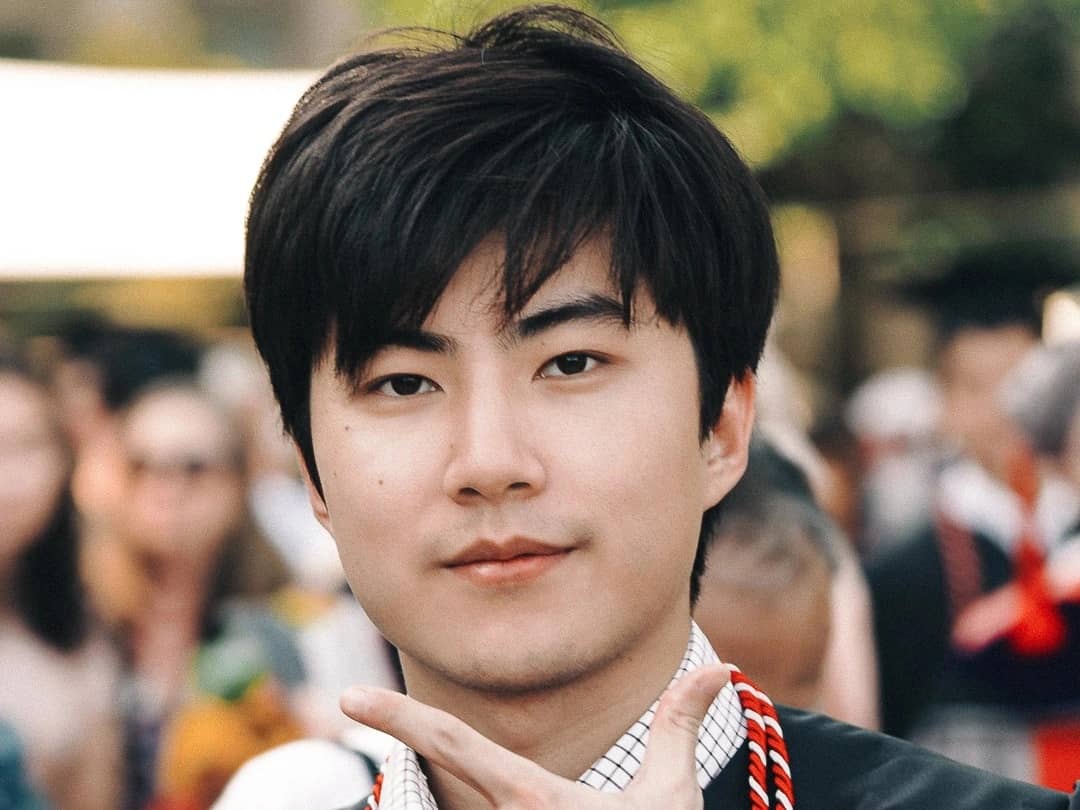위키 구독하기
Share wiki
Bookmark
Pingchuan Ma
0%
Pingchuan Ma
핑추안 마(중국어: 馬平川)는 메타의 초지능 연구소의 AI 연구 과학자입니다. 그의 연구는 머신 러닝, 컴퓨터 그래픽, 로봇 공학의 교차점에 초점을 맞추고 있으며, 미분 가능한 시뮬레이션, 물리 기반 생성 모델, 멀티모달 학습과 같은 분야에서 상당한 기여를 했습니다. [1] [2]
교육
마는 2015년부터 2019년까지 중국 톈진의 난카이 대학교에서 소프트웨어 공학 학사 학위를 받았습니다. 학부 과정을 마친 후 미국으로 건너가 매사추세츠 공과대학교(MIT)에서 대학원 과정을 밟았습니다. MIT에서 그는 컴퓨터 과학 및 인공지능 연구소(CSAIL)에 합류하여 Wojciech Matusik 교수의 지도를 받았습니다. 그는 2023년 2월에 컴퓨터 과학 석사(S.M.) 학위를 취득했으며 2025년 2월에 컴퓨터 과학 박사 학위 논문을 성공적으로 변호했습니다. [1] [3] [6]
경력
2025년 7월, 마는 메타의 신설 초지능 연구소의 AI 연구 과학자로 합류했습니다. 이 팀은 기초 AI 연구를 발전시키기 위해 구성되었습니다. 그의 임명은 메타의 중요한 인재 확보 노력의 일환이었으며, 다른 주요 AI 조직에서 수많은 연구원을 영입했습니다.
메타에 합류하기 전, 마는 2025년 2월부터 7월까지 OpenAI에서 기술 스태프 멤버로 근무했으며, 그의 연구는 멀티모달 모델과 사후 훈련 기술에 집중되었습니다. 2019년부터 2025년까지 MIT CSAIL에서 박사 과정을 밟는 동안 연구 조교로 근무했습니다. 마의 전문적인 경험은 저명한 기술 연구소에서의 여러 연구 인턴십으로 보완됩니다. 그는 2024년 5월부터 12월까지 NVIDIA 시애틀 로봇 연구소에서 인턴으로 근무하며 Dieter Fox 교수와 함께 일했습니다. 2021년에는 Chuang Gan 교수의 지도하에 MIT-IBM Watson AI 연구소에서 인턴으로 근무했습니다. 그의 가장 초기 산업 인턴십은 2018년 5월부터 2019년 2월까지 SenseTime Research에서였습니다. MIT에 있는 동안 2022년 가을에 6.807/6.839 고급 컴퓨터 그래픽 과정의 조교로도 근무했습니다. 그의 연구 경력은 2016년 4월부터 2019년 6월까지 난카이 대학교에서 조교로 시작되었습니다.
마의 연구는 머신 러닝, 컴퓨터 그래픽, 로봇 공학의 개념을 통합합니다. 그의 연구의 중심 주제는 미분 가능한 물리 시뮬레이션의 개발 및 응용이며, 이는 복잡한 물리 역문제 해결을 위해 기울기 기반 최적화 방법을 사용할 수 있게 합니다. 이 접근 방식은 소프트 로봇 공학, 유체 역학, 전산 설계 및 시스템 식별의 문제에 적용되었습니다. 그의 연구는 또한 딥 러닝의 표현력과 물리 법칙의 제약을 결합하여 보다 현실적이고 제어 가능한 출력을 생성하는 물리 기반 생성 모델의 생성을 탐구합니다. 그의 연구의 다른 주요 영역에는 비전 및 언어에 대한 멀티모달 학습, 효율적인 AI 시스템 개발, 과학적 발견에 대한 AI 적용이 포함됩니다.
그는 NeurIPS, ICML, ICLR, SIGGRAPH 및 ICRA를 포함한 주요 AI 및 컴퓨터 그래픽 컨퍼런스에서 발표된 수많은 논문을 공동 저술했습니다.
그의 주목할만한 출판물은 다음과 같습니다.
- KAN 2.0: Kolmogorov-Arnold Networks Meet Science (2024): Ziming Liu, Yixuan Wang, Wojciech Matusik 및 Max Tegmark와 공동 저술한 이 논문은 물리적 사전 지식과 상징적 구성 요소를 모델 아키텍처에 통합하여 과학적 발견에 맞게 조정된 Kolmogorov-Arnold Networks(KAN)의 진화를 제안합니다.
- LLM and Simulation as Bilevel Optimizers: A New Paradigm to Advance Physical Scientific Discovery (2024): ICML에서 발표된 이 연구는 대규모 언어 모델(LLM)이 가설을 제안하고 개선하는 고수준 최적화기로 작동하고, 미분 가능한 시뮬레이션이 물리 법칙에 대해 이러한 가설을 검증하는 저수준 최적화기로 작동하는 프레임워크를 소개합니다.
- DiffuseBot: Breeding Soft Robots with Physics-Augmented Generative Diffusion Models (2023): NeurIPS에서 구두 발표된 이 논문은 물리 기반 시뮬레이션에 의해 안내되는 확산 모델을 사용하여 소프트 로봇의 형태와 제어를 공동 설계하는 방법을 제시하여 다양하고 고성능 로봇 구조의 생성을 가능하게 합니다.
- Learning Neural Constitutive Laws from Motion Observations for Generalizable PDE Dynamics (2023): ICML에 게재된 이 연구는 편미분 방정식(PDE) 프레임워크 내에서 응력과 변형 사이의 관계를 모델링하는 신경망을 사용하여 비디오 관찰에서 직접 물리 시스템의 기본 재료 속성(구성 법칙)을 학습하는 방법을 소개합니다.
- SoftZoo: A Soft Robot Co-design Benchmark For Locomotion In Diverse Environments (2023): ICLR에서 발표된 이 연구는 소프트 로봇을 설계하고 평가하기 위한 포괄적인 벤치마크를 소개하여 다양한 지형에서 모양과 제어 정책을 공동 최적화하기 위한 표준화된 환경을 제공합니다.
- RISP: Rendering-Invariant State Predictor with Differentiable Simulation and Rendering for Cross-Domain Parameter Estimation (2022): ICLR에서 구두 발표된 이 논문은 비디오에서 물리적 속성을 추정하여 실제 객체의 "디지털 트윈"을 생성하기 위한 프레임워크를 제안합니다. 미분 가능한 시뮬레이션과 렌더링을 통합하여 객체의 시각적 외관과 기본 물리 역학 사이의 간극을 해소합니다.
- DiffAqua: A Differentiable Computational Design Pipeline for Soft Underwater Swimmers with Shape Interpolation (2021): ACM Transactions on Graphics(SIGGRAPH)에 게재된 이 논문은 효율적인 연체 수중 수영자를 설계하기 위한 완전히 미분 가능한 파이프라인을 자세히 설명합니다. 이 시스템은 수영 속도를 최대화하기 위해 로봇의 모양과 작동을 최적화합니다.
- Efficient Continuous Pareto Exploration in Multi-Task Learning (2020): ICML에서 발표된 이 연구는 다중 작업 학습 문제에서 파레토 프런트를 효율적으로 매핑하기 위한 알고리즘을 소개하여 다양한 목표 간의 절충점을 보다 완벽하게 이해할 수 있도록 합니다.
- Fluid Directed Rigid Body Control using Deep Reinforcement Learning (2018): ACM Transactions on Graphics(SIGGRAPH)에 게재된 이 초기 연구는 딥 강화 학습을 사용하여 유체 시뮬레이션 내에서 강체의 움직임을 제어하여 객체가 복잡한 유체 환경을 자율적으로 탐색할 수 있도록 하는 방법을 보여줍니다.
위 목록은 AI, 로봇 공학 및 컴퓨터 그래픽 분야에 대한 마의 기여를 나타냅니다. [1] [2] [3] [4] [5] [6] [7]
잘못된 내용이 있나요?
